A State of the Union I Would Watch
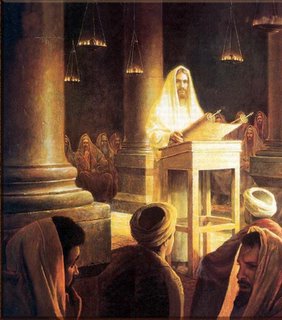
Karen Hall at Some Have Hats seems to be emerging from hibernation, and offers us this gem.
(Actually, it's her son Caleb that deserves the credit, but he's not blogging yet.)
"The only true currency in this bankrupt world is what you share with someone else when you're uncool" -- Lester Bangs

WASHINGTON, Jan. 27 — Is there such a thing as an ethical spy?
A group of current and former intelligence officers and academic experts think there is, and they are meeting this weekend to dissect what some others in the field consider a flat-out contradiction in terms.
The organizers say recent controversies over interrogation techniques bordering on torture and the alleged skewing of prewar intelligence on Iraq make their mission urgent. At the conference on Friday and Saturday in a Springfield, Va., hotel, the 200 attendees hope to begin hammering out a code of ethics for spies and to form an international association to study the subject.
Conference materials describe intelligence ethics as "an emerging field" and call the gathering, not sponsored by any government agency, the first of its kind. The topics include "Spiritual Crises Among Intelligence Operatives," "Lessons From Abu Ghraib," "Assassination: The Dream and the Nightmare" and "The Perfidy of Espionage." . . .
"It doesn't make much sense to me," said Duane R. Clarridge, who retired in 1988 after 33 years as a C.I.A. operations officer and who will not attend the conference. "Depending on where you're coming from, the whole business of espionage is unethical."
To Mr. Clarridge, "intelligence ethics" is "an oxymoron," he said. "It's not an issue. It never was and never will be, not if you want a real spy service." Spies operate under false names, lie about their jobs, and bribe or blackmail foreigners to betray their countries, he said . . .


By Hillary Frey
Jan. 27, 2006 | Today, Oprah Winfrey found herself in a position she has never been in before: having to apologize to her audience. "I regret that phone call," she said during a live taping of "The Oprah Winfrey Show" in Chicago. She was referring to her Jan. 11 phone-in to Larry King, during which the daytime queen expressed support for Oprah's Book Club author James Frey, who was under the initial round of fire for having fabricated parts of his mega-selling memoir "A Million Little Pieces." "I left the impression that the truth does not matter," she said. "To everyone who has challenged me about this book -- you are absolutely right."
Good for Oprah, right? Admitting being wrong, as Oprah has no doubt counseled guests on her show many times, isn't an easy thing to do, especially in front of millions of people. Yet, in the wake of this week's New York Times reports casting even wider doubts on the veracity of Frey's memoir, she didn't have much of a choice. Besides the Smoking Gun's initial investigation showing that Frey (to whom I am not related) lied about time he spent in jail and various run-ins with the law, some employees at the rehab center Frey attended have come forward to dispute his portrait of life there. No doubt her many, many followers (and admirers like myself) have been waiting for Oprah to finally pronounce James Frey a fraud, and to distance herself both from the flimsy book that she made into a phenomenon, and from the lying man she made into a hero.
Yet, even for those of us who have wanted to see Frey go down in flames for his lies, today's "Oprah" was unnerving . . .
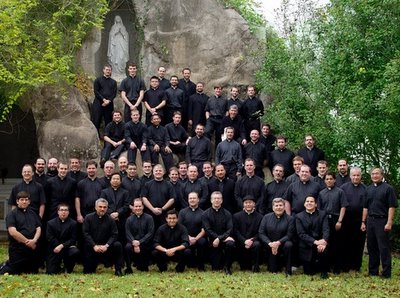
http://markmossasj.blogspot.com/2005/07/those-darn-jesuits.html
http://markmossasj.blogspot.com/2005/07/those-darn-jesuits-hopeworks-n-camden.html
http://markmossasj.blogspot.com/2005/08/those-darn-jesuits-sci-fi-favorites.html
http://markmossasj.blogspot.com/2005/07/those-darn-jesuits-speaking-of.html
http://markmossasj.blogspot.com/2005/07/those-darn-jesuits-hope-and-healing-in.html
http://markmossasj.blogspot.com/2005/07/those-darn-jesuits_12.html
http://markmossasj.blogspot.com/2005/11/those-darn-jesuits-fr-willie-garcia.html
http://markmossasj.blogspot.com/2005/11/those-darn-jesuits-st-robert.html
http://markmossasj.blogspot.com/2005/11/those-darn-jesuits-father-chanh-nguyen.html
http://markmossasj.blogspot.com/2005/12/those-darn-jesuits-baghdad-college.html
http://markmossasj.blogspot.com/2005/07/who-knew-place-for-prayers.html
You might also try Company magazine.

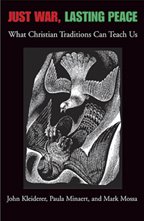 While I was away, a book that I co-authored got one step closer to publication!
While I was away, a book that I co-authored got one step closer to publication!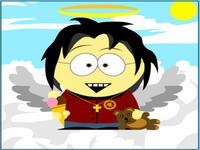
 . . . to plug one of the best shows on TV right now.
. . . to plug one of the best shows on TV right now. Light to no blogging this week as I try to get my final exams and final papers completed, and try to fight off distractions!
Light to no blogging this week as I try to get my final exams and final papers completed, and try to fight off distractions! No, he wasn't in King Kong, or Memoirs of a Geisha. He's still just helming The Daily Show.
No, he wasn't in King Kong, or Memoirs of a Geisha. He's still just helming The Daily Show.

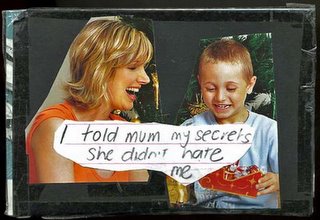

The content of this site is the responsibility of its author and administrator, Mark Mossa, SJ, and does not necessarily represent the Society of Jesus